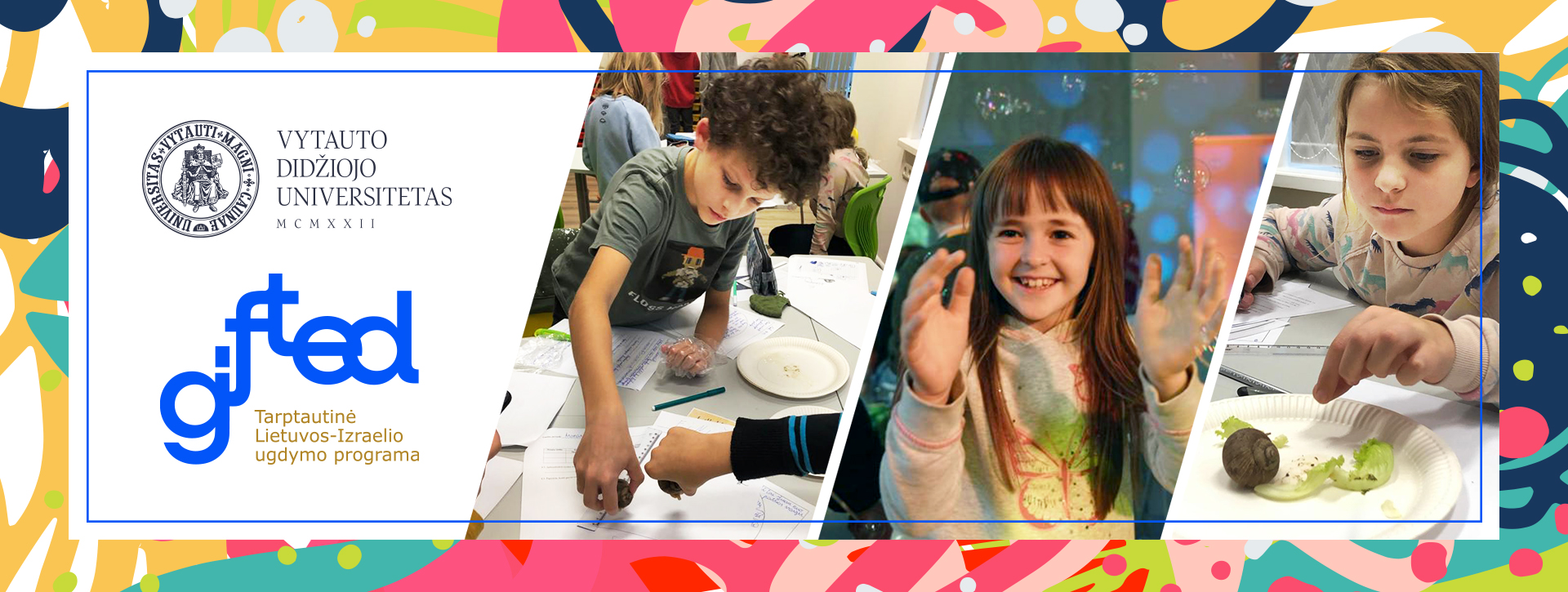Gifted child: how to identify, develop, assess, and provide assistance
In the context of educational transformation, inclusive education is emphasized, focused on recognizing the diversity of learners, the need for personalized learning, the learning paths offered by artificial intelligence, and the development of skills. The pursuit of high-quality education for each student is identified as a very important component of the idea of inclusive education. In this context, it is important to note that gifted students make up a part of all learners. Therefore, evaluating the conclusions and practical experience of scientists, Vytautas Magnus University and the gifted children education program “Gifted” invited all interested parties to a free forum “Gifted Children Education: Science and Practice” on June 12, dedicated to gifted children: their identification, education, assessment, and provision of educational assistance. The organizers of the event hope that this will become a permanent platform for collegial feedback between scientists and practitioners. As many as 470 participants from all over Lithuania registered for the first forum.
A guest from Israel, a representative of the Hebrew Pedagogical University of Jerusalem, Dr. Gadi Itai, gave a presentation on “Psychological and Pedagogical Aspects in the Design of Learning for Gifted Children”.
The lecturer talked about some methods in the classroom (for example, deferred assessment, strict deadlines, inductive learning, task selection and questions above the general class average) and why they are especially suitable for gifted students with emotional problems, such as perfectionism, impatience, etc.
“Aren’t they too good?!” – why gifted children also need adapted education, revealed in her presentation Dr. Jurga Misiūnienė, coordinator of the psychologists’ platform of the Center for the Education of Gifted Children, psychologist, lecturer, head of the VMU School Psychology Program Committee. She also presented research on attitudes towards giftedness in schools and the needs of gifted children, explained why the choice is not right: let’s offer all children the same as gifted ones, and everything will be fine, explained the risks, what inappropriate behavior develops when a gifted child is educated in an inappropriate environment, or what emotional difficulties can arise.
Head of the Department of Systems Analysis at VMU, Senior Researcher at the Institute of Educational Research Assoc. Prof. Dr. Judita Kasperiūnienė in her report “How to Implement Artificial Intelligence for Working with Gifted Children?” told how artificial intelligence can become an aid to a teacher working with gifted children. The lecturer also discussed the challenges of applying artificial intelligence in lessons and practically tested various artificial intelligence models when creating a lesson plan, visual aids, activities, tasks and assessment rubrics.
Kornelija Giedrikaitė, a primary school teacher at “Gifted” and Queen Martha School, co-author of the publications “Financial Literacy” for grades 1-4, and concertmaster, spoke about the importance of integration and experiential education in the education of gifted children. She also shared her experience with organizing teamwork, experiential interdisciplinary tasks, their presentation, advantages and challenges that arise for gifted children when working in a team, and introduced the Robinson Crusoe method.
“Are bridges just buildings?” asked Kristina Kondrotienė, a Gifted expert, a German and English teacher, and the center’s deputy head for education. The lecturer shared her experience in organizing STEAM classes for gifted children: from a discussion about the bridges around us to creative workshops.
Lina Steikūnė, an expert at the center and a teacher at the Saulės Gojus school, shared her experience on how to plan a lesson in a primary school to meet the needs of gifted children. She told us how to teach gifted children financial literacy and provided recommendations on how a teacher can plan a lesson in a general education primary school to meet the needs of gifted children.
The forum was summarized by VMU Academy of Education lecturer, deputy head of the Gifted center, Dr. Daiva Bartninkienė, who read a report “Personalized and individualized education – synonyms?”




